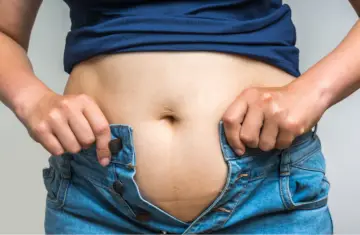Menopause and Bone Health
New results published from a 20-year study of US women. The Study of Women’s Health Across the Nation (SWAN) involved 1490 women who were between the ages of 42 and 52 in 1996. The study went on for approximately 20 years. Researchers evaluated changes across the menopausal transition, one of which was bone health. Here are the results that were just released…
- Compared to not taking calcium supplements, women who reported taking calcium supplements at baseline experienced less loss of bone mineral density but no difference in bone fractures over the menopausal transition
- Consumption of milk and dairy products (ranging from 0 servings to more than 2.5 servings per day) had no effect on bone mineral density or fracture risk
Nutrients Important To Bone Health
Does this mean that calcium is unnecessary for bone health? Probably not. But it does mean that preventing fractures after menopause is more complicated than just drinking more milk. Here is a (non-exhaustive) list of nutrients involved in bone remodeling, strength and overall bone health:
- Calcium
- Magnesium
- Vitamin D
- Silicon
- Vitamin K
- Boron
- Vitamin C
- Copper
- Zinc
- Manganese
And then there are the influences of protein, exercise, heavy metal exposure, etc. The bottom line on bones? We need to address them as a whole-health issue.
While calcium plays a role in maintaining bone health, it is not the sole solution for preventing bone loss during menopause. A holistic approach, including adequate intake of other vital nutrients like magnesium, vitamin D, and vitamin K, along with regular exercise and a healthy lifestyle, is essential for optimal bone health. If you’re concerned about how to support your bones during this phase of life, it’s important to explore personalized guidance tailored to your needs.
For further support, consider scheduling a Wellness Audit with Coach Carla to create a comprehensive plan.





